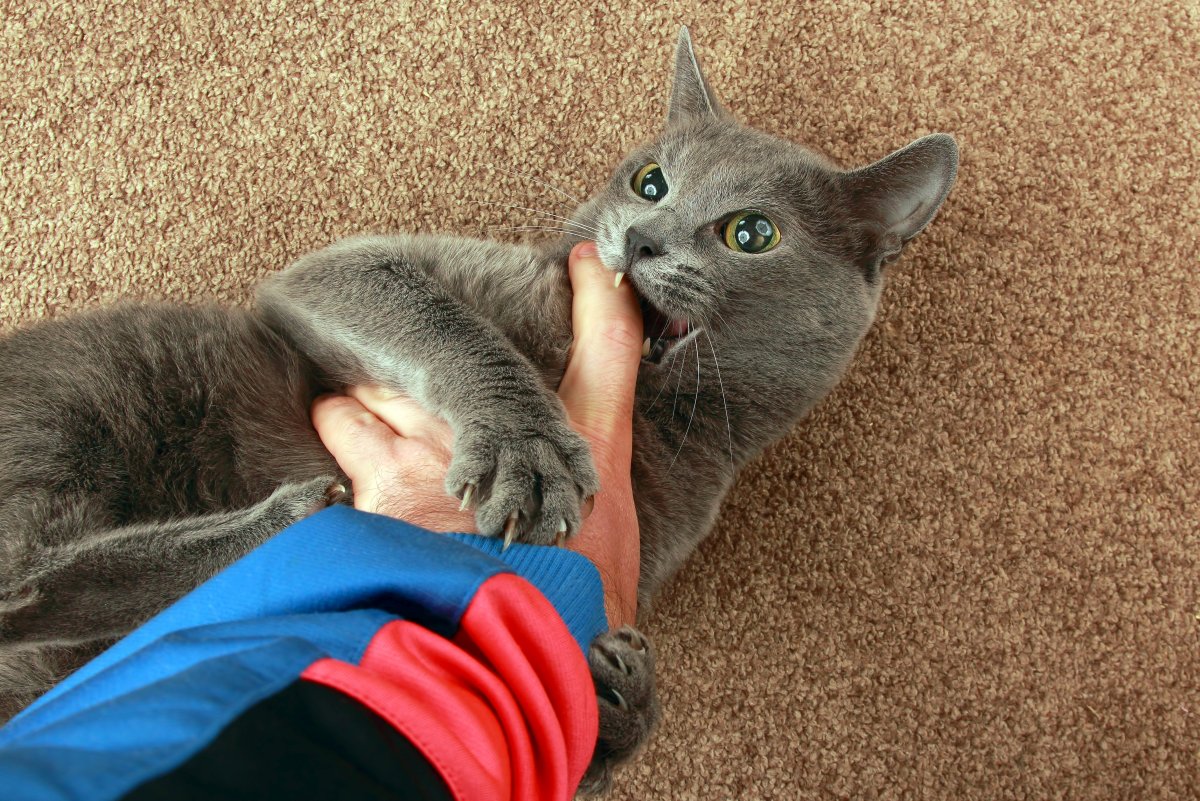If you already own an older cat, this happiness can turn into misery. Older cats are more likely to act territorial because they are skilled in guarding their territory. But sometimes, their fight with other cats can get out of hand. If your older cat attacks your new kitten, there are some things that you need to do to make them comfortable around each other.
Note: It can take a few days, maybe weeks or months, but hopefully, your feline companions will learn to live happily together!
Why Do Older Cats Hate New Kittens?
Undoubtedly, cats are jealous, and they hate when anyone tries to take over their people and boundaries. They are very protective of their territories. When you introduce a new kitten to your home, your older cat is less likely to tolerate the kitten’s existence.
There is also a possibility that your older cat is not familiar with how to interact with new kittens socially. For example, if your cat dilates her eyes, steps back to attack, or hisses aggressively at the kitten, in this scenario, pay attention to your older cat’s behavior and lay some ground rules between them.

Why Do Older Cats Attack Kittens?
Cats are very possessive, and they have primitive instincts that make them drive to attack kittens. These factors include:
● Friendless Behavior
The ancestors of domestic cats were solitary creatures, and they loved to hunt prey alone. It is possible your older cat also has retained this behavior that doesn’t allow young kittens to be around. If you don’t supervise them, your older cat will test her athleticism on your young ones.
● Lack of Social Abilities
If you have an indoor cat that likes to stay out of others’ business or make less interaction, then welcoming a new kitten can give her a shock. Therefore, both cats need to learn social skills to interact appropriately.
● Cat’s Ranking in the House
Cats like to rank themselves in the house among other pet animals. Their posture and verbal signs determine their rank. If your kitty is obedient, your older cat will bully her for getting a higher ranking. The more your kitty gets obedient, the more aggressive and dominant the older cat will be.

How to Stop an Older Cat From Attacking a Kitten?
● Take Your Cat to a Vet to Address the Reason for Aggression
While your older cat may seem to be acting territorial, she may also be uncomfortable and prone to attack the kitten if she is sick. For this reason, make an appointment with your vet so that they can determine any underlying illness. If they suspect any medical cause, your vet will prescribe medication to make your cat feel relaxed.
Your cat may be suffering from common diseases such as osteoarthritis, hyperthyroidism, nervous system problems, and dental disease. These diseases cause aggression in cats. Or, if your cat doesn’t have any medical problems, then there may be territorial problems in your house.
● Move Your Older Cat From the Area When She Misbehaves
If your older cat consistently terrorizes a young kitty, your younger one will become fearful in her own home. This can also leave a long-lasting negative impact on her.
If distracting an older cat with toys is not working, you may need to teach her the consequences of bullying a new kitten.
Don’t shout at the cat nor punish her because your cat might not accept it as it sows fear. Pick her gently and place her away from the zone. In addition, be patient when training your cat. Use the word commands such as ‘Hey” or “leave it’ whenever she tries to attack a kitten. Hopefully, sooner or later, your older cat will pass the training sessions.

● Provide Them With Separate Belongings
While introducing a new kitten to your older cat, ensure to establish ownership to prevent any sudden fights over objects.
Give both cats their separate food and water bowl, and also make sure that none of them steal food from each other’s bowls. Give them separate litter boxes to maintain their privacy.
Never expect your older cat to share her toys and bedding with a kitten; therefore, get your kitten new toys and bedding.
● Keep Your Older Cat in a Separate Room
If your cat is constantly attacking your new kitten, move them into different rooms in the house so they cannot see each other. Avoid letting them go into the same room since they can get aggressive again. It is okay if they smell or hear each other because it will help them get used to one another.

● Give Them Treats for Collaborative Play
Rewarding good behaviors of both cats can be effective for training them because getting no reward can leave a negative impact on them. Remember not to yell at cats because they find yelling as fear and threat.
Try to play the same game with both cats and give them treats if they interact without displaying any negative behavior. If they are playing together, reward them with a treat. Give both feline friends a treat if your older cat allows a kitten to come close and does not attack her. Also, reward them when they are ready to share their toys.
Wrapping Up
Adding a new kitten to your family means making her a friend to your older cat. Your older cat may find the kitten’s personality unrefined towards herself, which needs to be corrected.
Give your new kitten some time and space if your older cat is terrorizing her. It would be best to provide them with their personal safe space. Also, supervise their interaction to prevent any fighting between them. To make your home a loving place, love your cats and give them equal attention.







